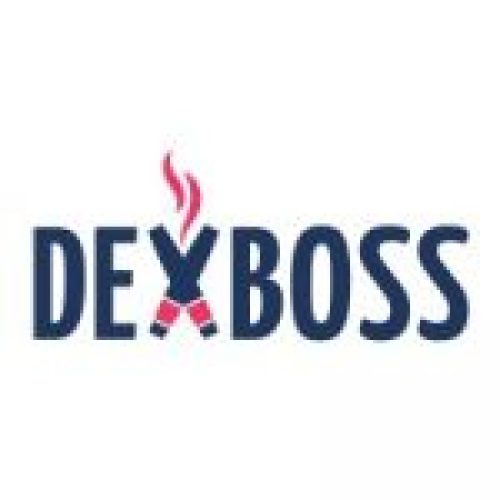Governments around the world are investigating how blockchain technology can make public sector operations more efficient, transparent and secure. Blockchain’s inherent features like immutability, decentralization and cryptographic security lend themselves well to reinventing a variety of government functions.
In this post, we’ll examine some of the most promising applications of blockchain across major branches of government like land registries, election systems, document management, identity services, benefits disbursement and more.
An Introduction to Blockchain Technology
Before we look at specific use cases, let’s briefly examine what blockchain technology is and why governments are so interested in it.
A blockchain is essentially a distributed digital ledger that records transactions or data immutably using cryptographic functions. It is decentralized, meaning it isn’t controlled by any single entity but rather uses a consensus mechanism to verify transactions.
Some key attributes make blockchain appealing for government use:
- Immutability – Any data recorded on blockchain cannot be altered, enhancing integrity of records.
- Transparency – All stakeholders can view the same records, enabling trust.
- Security – Encryption and decentralization prevent unauthorized access or tampering.
- Accuracy – Consensus mechanisms ensure correctness of data. Bugs can be detected easily.
- Provenance – Detailed audit trails provide greater visibility into origins and ownership.
- Automation – Smart contracts enable complex business logic to execute automatically based on predefined rules.
These characteristics can address many common problems faced in public sector operations today like record tampering, leakages, auditing delays, service inefficiencies and lack of transparency. Blockchain offers a secure shared source of truth for multi-agency environments.
Let’s look at some specific use cases now.
Land Registries
One major government application of blockchain is in land registries and property records management. Several countries have piloted or launched blockchain land registries including Sweden, Georgia, Ukraine, India and Dubai.
Key benefits of a blockchain land registry:
- Records are immutable and forgery-proof, reducing title fraud. All documents like titles, deeds and liens can be securely recorded on chain.
- Real time visibility improves. Sale records and ownership changes get reflected and synced instantly across all entities.
- Paperwork and processes like property sales, titling and transfers become faster and simpler through digitization.
- Transaction transparency reduces corruption in land allotment. All citizens can verify legitimacy.
- Smart contracts enable automating several processes like registration, payments and deed transfers.
- Historical records are readily accessible and easy to audit on the shared ledger.
By streamlining land administration and providing tamper-proof public records, blockchain land registries establish stronger property rights and boost overall efficiency.
Voting Systems
Another major public sector application is in making elections more secure and transparent. Blockchain-based voting could address security flaws in current election systems ranging from voter impersonation and fraudulent vote counts to inaccurate records and improper vote transfers.
Some potential benefits of blockchain voting:
- Citizens can cast votes without disclosing their identity, enhancing privacy.
- Votes get immutably recorded on blockchain, making tampering and rigging virtually impossible.
- Results can be calculated and published almost instantly in a fully transparent manner.
- An auditable trail makes recounts easy. Voting activity can be monitored in real-time.
- Smart contracts enable automating vote tallying and verification according to predefined rules, reducing human error.
- Higher security and transparency increases public trust in electoral outcomes.
Several countries have tested blockchain-based voting including the City of Zug in Switzerland, the Moscow Municipal Duma elections and the Democratic primaries in West Virginia. Wider adoption is expected once the technology matures.
Government Records Management
Managing vast amounts of data across agencies is a huge challenge. Blockchain enables creating immutable unified repositories of government records like case files, project documents or policy papers.
Benefits include:
- Stakeholders can access the same data sources reducing duplication.
- Document tampering or falsification is prevented due to cryptographic immutability.
- Granular access controls increase security while maintaining transparency.
- Productivity improves as documents become easy to search, share and track in a unified system.
- Auditability enhances regulatory compliance.
Startups like GovBlocks and eGovern provide blockchain document management solutions for public sector needs. The Indian state of Maharashtra is using blockchain for managing public records.
Identity Management
Digital identities are critical for smooth delivery of government services. Blockchain-based identity management offers several benefits:
- Citizens have full control over their personal data that can be selectively shared with agencies via cryptographic keys.
- A single identity proof can be valid across agencies, eliminating re-issuing of documents.
- Digitally signed documents like driving licenses, birth certificates or address proofs are forgery-resistant.
- Privacy is enhanced as only necessary identity attributes get revealed as required.
- Online identity verification improves access to government services.
Estonia has a well-established blockchain-based e-Identity system for citizens to access both private and public services digitally. ID2020 is a nonprofit focused on blockchain identity solutions.
Supply Chain Management
Governments have highly complex supply chains across services like healthcare, defense, infrastructure and more. Blockchain brings greater transparency and accuracy into procurement, logistics and vendor management.
Key benefits:
- Real-time tracking of material movement across parties removes information lags.
- Transaction histories are well documented reducing leakages. Disputes can be resolved faster.
- Cost savings result from eliminating manual paperwork and delays.
- Compliance improves as all processes become auditable.
- Accurate asset databases can be maintained on blockchain across departments.
The Government of Andhra Pradesh in India implemented a blockchain-based supply chain for sand mining, transport and sales to reduce illegal mining and cash transactions. Government blockchain solutions by IBM and SAP also enable public sector supply chain reforms.
Smart Contracts
Smart contracts are self-executing lines of code that implement terms of an agreement on blockchain. They have wide applications in government for automating processes:
- Public Procurement – Tender rules and vendor payments can be automated
- Land Registry – Transactions like deed transfers can self-execute upon payment
- IoT Data Monitoring – Actions can be triggered automatically when sensor thresholds are exceeded
- Benefits Disbursement – Social welfare payouts and subsidies can be automated
- Tax Collection – Tax filings and payments can auto execute based on predefined logic
- Law Enforcement – Penalties for violations can be implemented as smart contracts
Automation enhances speed, accuracy and transparency of government workflows. Dubai has launched the Smart Dubai initiative to implement blockchain smart contracts across services.
Final Thoughts
This post covers some of the most transformative use cases of blockchain in government. Wider adoption faces some hurdles like scalability of blockchain systems, management of decentralized infrastructure, and need for greater legal recognition of blockchain records.
However, blockchain has the potential to significantly boost efficiency, security and transparency across nearly all aspects of public administration from data keeping and compliance to service delivery. By streamlining records management and automating complex processes, blockchain can help build trust in government.
Like the Internet did for communications, blockchain is an epochal technology platform that could transform governance and enhance public sector performance. It behooves policy makers and government IT departments to proactively explore fitting blockchain into their modernization roadmaps.
Focus Keyword: Blockchain technology in government, Government blockchain applications, Blockchain use cases in public sector, Blockchain for government services, Government data integrity with blockchain, Blockchain for secure voting systems, Transparency in government with blockchain, Supply chain management in government using blockchain, Blockchain for identity management in government, Smart contracts for government contracts, Blockchain for land registry and property records, Blockchain for secure document management in government, Regulatory compliance using blockchain in government, Enhanced cybersecurity for government data with blockchain, Cost savings and efficiency gains in government operations with blockchain.



